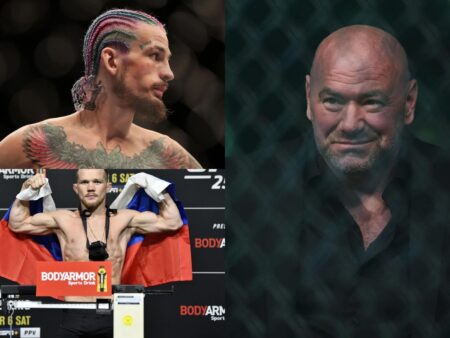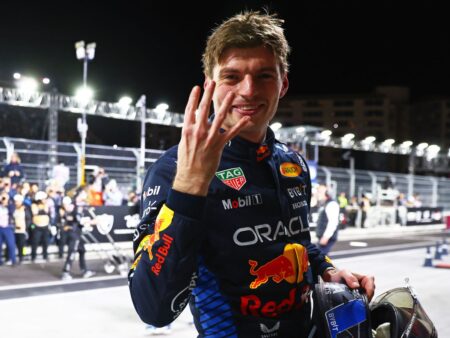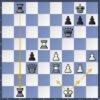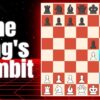In the high-stakes world of elite chess, where prodigies rise and legends are forged, there are those who consistently perform at the highest level yet remain tantalizingly close to the pinnacle. Anish Giri, a name synonymous with resilience and strategic depth, epitomizes this enduring pursuit. For over a decade, the Dutch Grandmaster has been a fixture among the world`s top players, yet the coveted World Championship title has remained just out of reach. Now, as a new generation reshapes the chess landscape, Giri expresses an unwavering conviction: his time is far from over, and the ultimate crown is still within his grasp.
The Unyielding Ambition of a Chess Veteran
In a sport increasingly dominated by youthful exuberance, Anish Giri stands as a beacon of experienced ambition. While some established legends, like Magnus Carlsen, openly speak of diminished motivation for the rigorous classical format, Giri`s fire burns brighter than ever. “Of course, Carlsen has won everything,” Giri remarked with a hint of good-natured self-awareness on the sidelines of the Chennai Grand Masters 2025. “I don`t have that problem, so motivation is still very much there.” This statement isn`t just bravado; it`s a profound declaration from a player who has dedicated his life to the game, still believing in his capacity to reach the absolute summit.
Navigating the Generational Shift: Experience as a Weapon
The contemporary chess scene is arguably the most dynamic in history. Names like Gukesh Dommaraju, R Praggnanandhaa, Arjun Erigaisi, Alireza Firouzja, Nodirbek Abdusattorov, and Vincent Keymer have ushered in a `youth revolution,` lowering the average age at the elite level. Yet, Giri views this not as an insurmountable obstacle, but as a familiar challenge. He draws parallels to his own early career in the mid-2010s, when he battled titans like Carlsen, Levon Aronian, and Vladimir Kramnik.
For Giri, the fundamental struggle remains unchanged, regardless of the opponent`s age. “My tournaments are fine, but also I play with my other colleagues, with my friends, who are also strong players. And I play training games. And I just see that I`m still very strong,” he asserts. His confidence is not merely subjective; it`s rooted in a deep understanding of his own capabilities and a constant evaluation of his play against the best, both formally and informally.
The Defensive Fortress: Giri`s Signature Strength
One of the defining characteristics of Anish Giri`s play is his extraordinary defensive prowess. He is notoriously difficult to beat in classical chess, a trait that makes him a formidable opponent even when not at his absolute peak. In 2025 alone, his record of one loss and twenty-four draws out of thirty-four classical games speaks volumes about his tenacity. “Because I am such a good defender, I can draw even when I`m playing badly,” Giri explains, a statement that might sound humble but underscores a rare and potent skill.
This ability to salvage draws from seemingly lost positions is a testament to his experience and deep positional understanding. At the recent Chennai Grand Masters, Giri famously recounted finding defensive resources to draw two games he felt he “should`ve lost” against Vidit Gujrathi and Nihal Sarin. Such resilience not only saves crucial half-points but also psychologically wears down opponents who expect to convert advantages against lesser players.
Experience: The Unseen Advantage in a Computer Age
Giri is acutely aware of how quickly chess has evolved, especially with the pervasive influence of computers. “What previously took 10 years, now changed in one year,” he observes, adding with a chuckle, “When I tell these young guys what it was like ten years ago, they look at me like I`m some kind of grandpa.” This generational gap in understanding the game`s evolution might seem like a disadvantage, but Giri turns it into a strength.
His decades of experience have cultivated an intuitive chess understanding that allows him to spot nuanced errors that younger, perhaps more computer-dependent, players might miss. “When I play a lot of players, what I immediately see is mistakes. Sometimes they`re committing them after a long thought,” he notes. This refined analytical ability, honed over thousands of games, provides him with a critical edge, allowing him to exploit subtle inaccuracies even against the most brilliant young minds.
Looking Ahead: The Path to 2026
Giri`s current focus is squarely on the qualification process for the 2026 Candidates Tournament. While he acknowledges that his career to date has been commendable, he feels a moral imperative to give the World Championship one more definitive shot. “As much as I would love to retire, when I see myself playing or training games, I just cannot do it right now. I think I have everything it takes,” he says. This isn`t a wish; it`s a strategic assessment backed by recent successes, such as his victory at the 2025 Sharjah Masters where he defeated Nodirbek Abdusattorov.
With upcoming events like the Grand Swiss and the World Cup looming, Giri is poised to leverage his unique blend of experience, defensive mastery, and unwavering motivation. He seeks that elusive “wind in the back” – a touch of luck that every champion needs – to complement his undeniable skill. The question isn`t whether Anish Giri is still a top player; it`s whether this enduring grandmaster, with his calculated gambit and formidable resilience, can finally dethrone the reigning champions and claim the World Chess Championship for himself.











